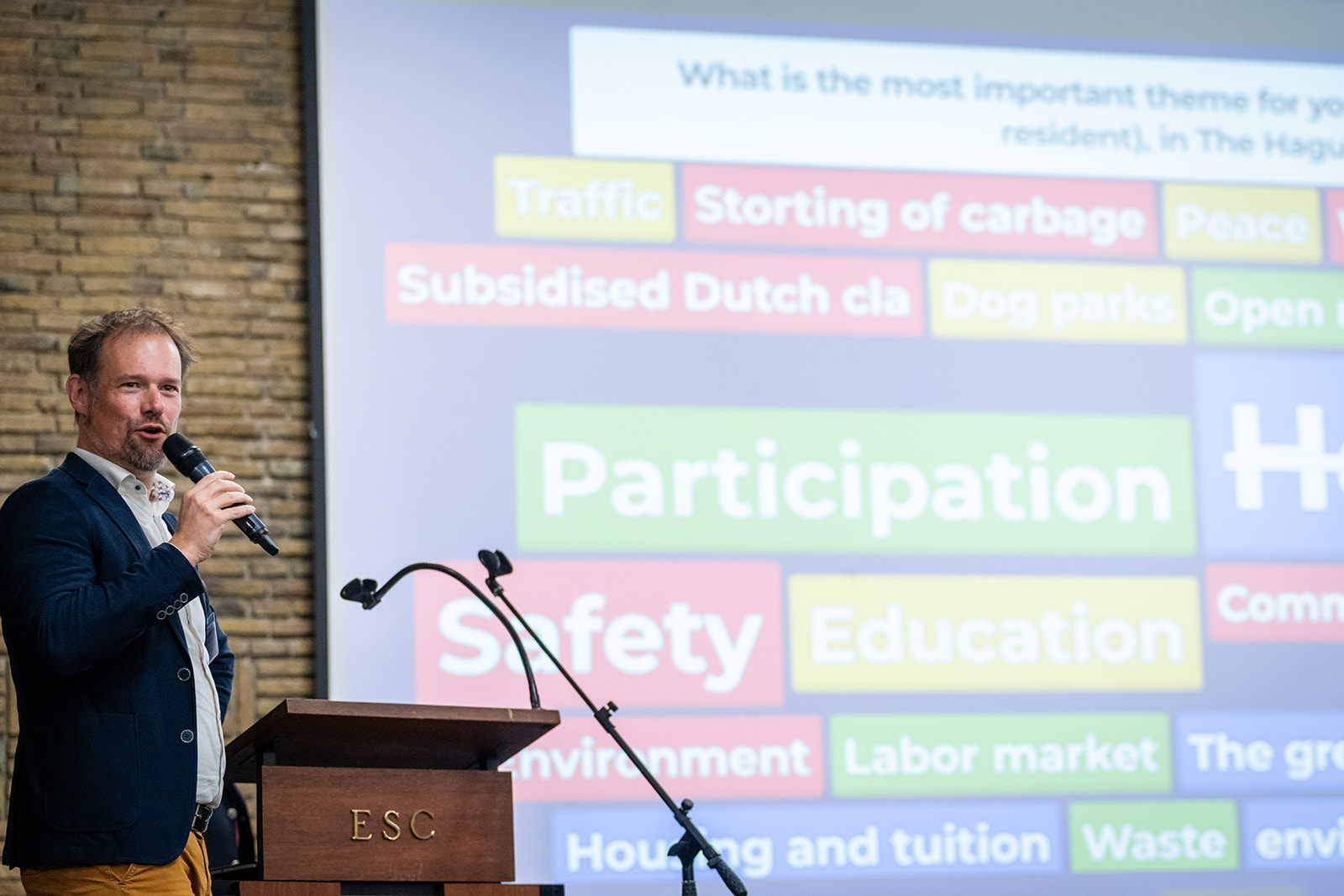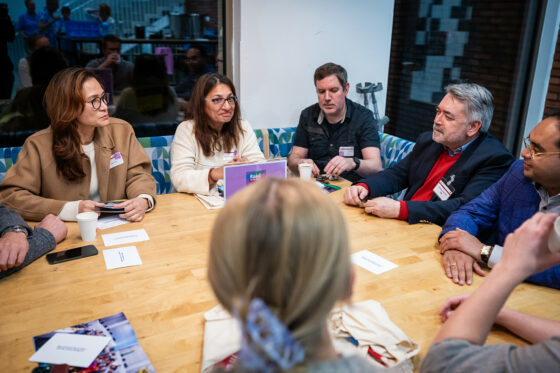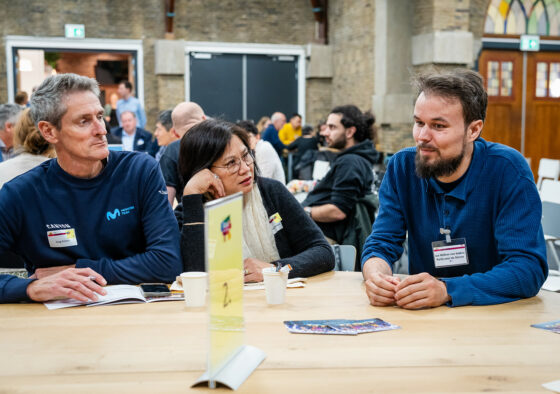Speed dating with councillors: The Hague aims at internationals
Senay Boztas
Edith Stein College teaches children of 70 nationalities – but on Wednesday night, its doors in The Hague opened to 80 adults curious to learn about local democracy.
“We are part of a city that is not only the political heart of the Netherlands but also a truly international community, home to people from all over the world,” said head teacher Bram van Welie. “And there’s no better place to experience that diversity than here.”
The first “meet your city council” night in The Hague, held in English, aimed to address the low voting levels among internationals, with local elections coming up in March 2026. Dutch nationals, EU nationals and other foreigners officially resident in the Netherlands for five years can vote.
As Dutch politics becomes ever more fragmented, local parties are realising that the international community is an overlooked source of votes.
Some of the 80 people present had lived in the Netherlands for many years. “My wife thought it would be a good idea to get familiar with our local government, see how it works, whether there really is a voice for people’s concerns,” said Greg Robson, an Australian IT worker, who came here 15 years ago.
“This is the first time that I’ve seen it in English,” added Cherlene Robson, a counsellor and volunteer. “Since we’ve lived here for such a long time, it’s time for us to find out what the local council does…Language is the barrier.”
Some arrived in the past months and years. Sebastian Cancinos, from Argentina, moved with his wife eight years ago and has two children in school. “Now they are settled, there’s more bandwidth to pay attention,” he said. “The political climate is more aggressive with immigrants, so it’s good to have a voice.”

The event, hosted by D66 liberal democrat Andrew van Esch and GroenLinks politician Maarten De Vuyst, included a questionnaire on basic general knowledge such as how many votes it takes to win one of the 45 seats in the municipality (4,059) and what it is responsible for. Councillors then introduced themselves in pairs, in “speed dating” sessions around the tables.
At one table, Japanese woman Hinako Tamaki, who had been in the Netherlands for six weeks, politely wondered why the city had such an issue with litter on the streets. “I was very surprised at the garbage,” she said. “In Japan, we have to separate it and if we don’t follow the rules, they don’t collect the rubbish but give it back to the house.”
Housing was another topic – in a municipality where last year the executive responsible, Martijn Balster, accused ‘expats’ of making property unaffordable for Dutch people.
Benjamin Broekhuizen, who works for the centre-right VVD, was told that one international had been overcharged by €3,000 over five years on service charges. “Apparently, it was service fees that they never properly specified or refunded, which is of course a big problem in the Netherlands – landlords trying to take advantage of the fact that people do not know the law,” he said.
Campaigning
Some parties were in full campaign mode. Lesley Arp, of the Socialist Party SP, who recently opposed converting hotels into short-stay accommodation aimed at internationals, told potential voters she was keen to inform them about their rights as tenants.
“There are lots of not bona fide housing agencies and as a local government we have an institution called the pandbrigade to check on them,” she said. “We know that these housing agencies ignore the laws. People who are internationals, for instance, don’t know what’s in [the laws] and they are easy to exploit.”
Three members of populist, right-wing party Hart voor den Haag also attended the evening.
Councillor Arjen Dubbelaar said he opposed immigration but still wanted these immigrants to vote for him. “I really believe we should do something about immigration, because we have a real shortage of housing,” he said. “We need to take care of the problems we have now in our city.”

Low turnout
Lies Roest, spokeswoman for the city council, said the evening was part of a plan to address low local election turnout among non-native Dutch speakers as well as young people. “This is a target group,” she said. “A lot of internationals don’t know that they can vote in the local election.”
The Hague will produce a “stemwijzer” election tool in English, matching policy ideas to parties. The council website has a multi-lingual translation function and the 90 people who were on the waiting list for the evening will be invited to another event, also in English.
Other councils are making similar efforts – with an internationals meet-up day with Amsterdam’s deputy mayor and local D66 leader Melanie van der Horst planned for October 2.
Politeness
Sanjay Sharma, from India, who has been in The Hague for three years, said the event was a good start. “You get to know that you can approach some of the people related to politics, on certain things that you want to get solved,” he said. “It would be very productive if they could have it on a regular basis.”
Deborah Valentine, director of volunteer organisation ACCESS and part of the audience had some advice on getting involved. “If there’s one thing you can learn about the Netherlands, it’s: start small,” she said. “Invite your neighbours in for coffee and they will tell you about the neighbourhood organisation, people who babysit and look after cats and about access to the government.”
Van Esch, who proposed the evening, pointed out that internationals have experience of how problems are solved in other countries and can share crucial ideas – if Dutch politicians are prepared to listen.
In a final round of public questions, one visitor shared how much she appreciated the councillors’ time. “One of the things we get to hear from our international inhabitants,” joked De Vuyst, “is how to be polite.”
Thank you for donating to DutchNews.nl.
We could not provide the Dutch News service, and keep it free of charge, without the generous support of our readers. Your donations allow us to report on issues you tell us matter, and provide you with a summary of the most important Dutch news each day.
Make a donation